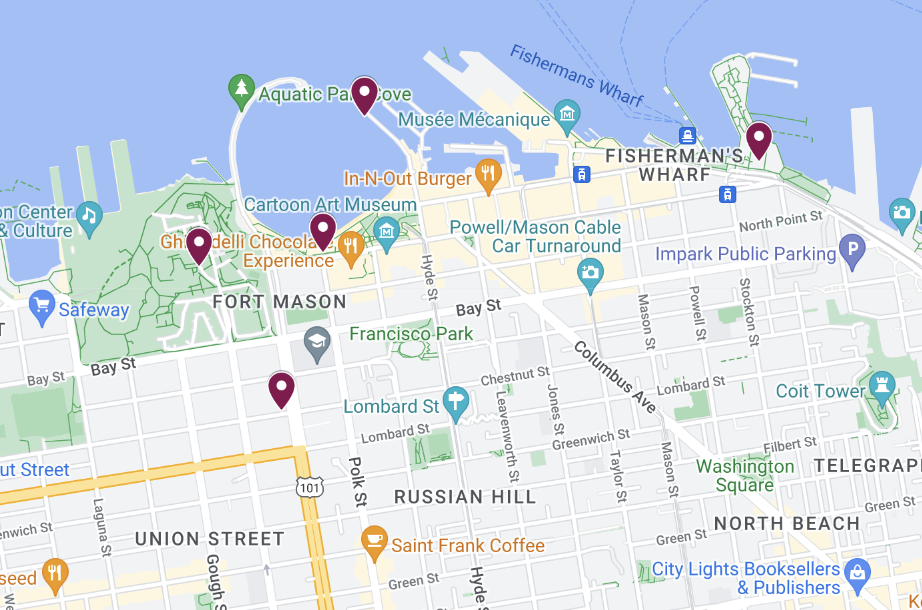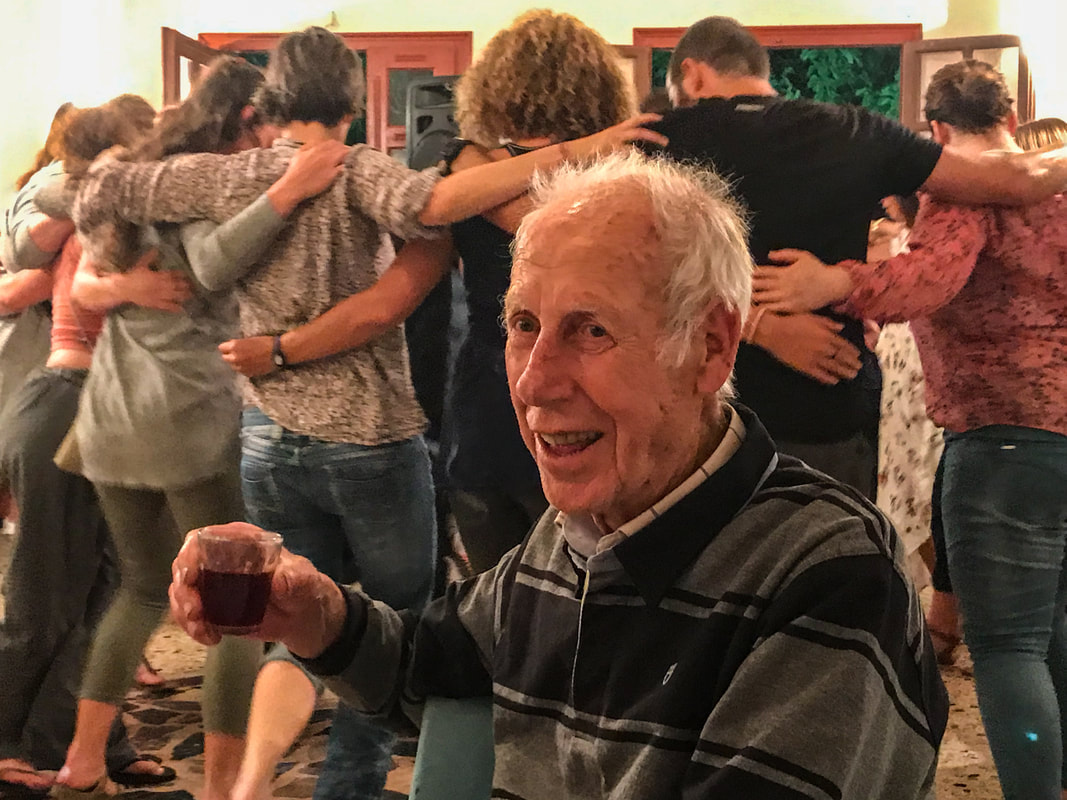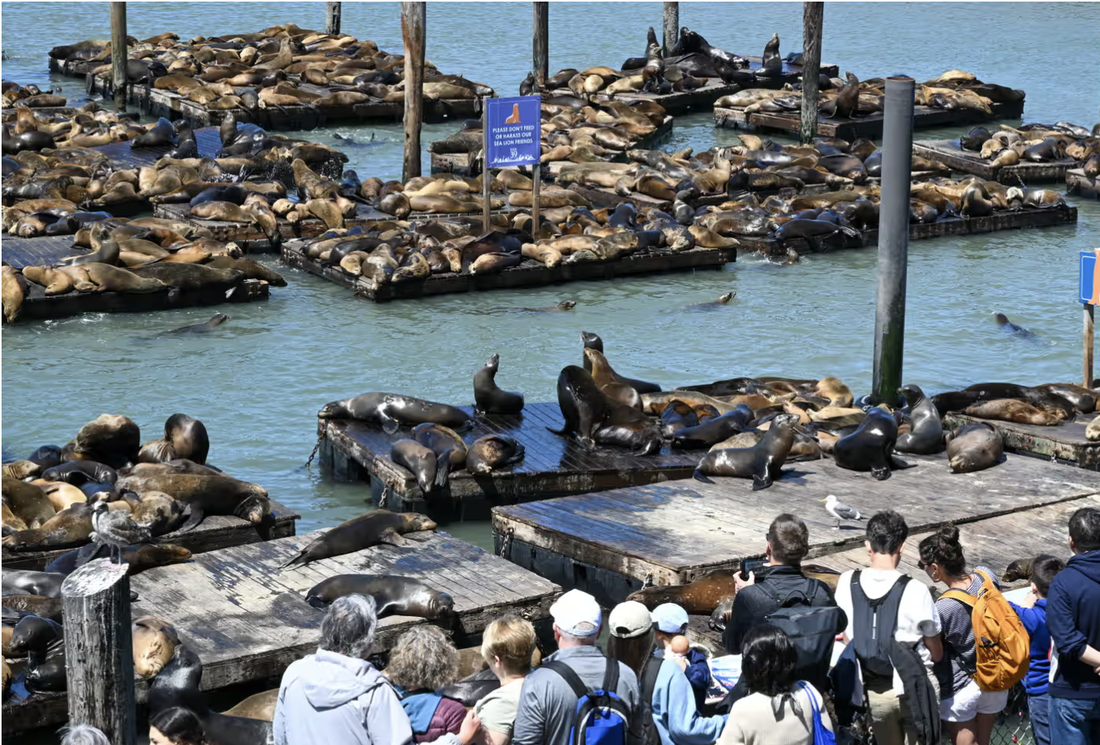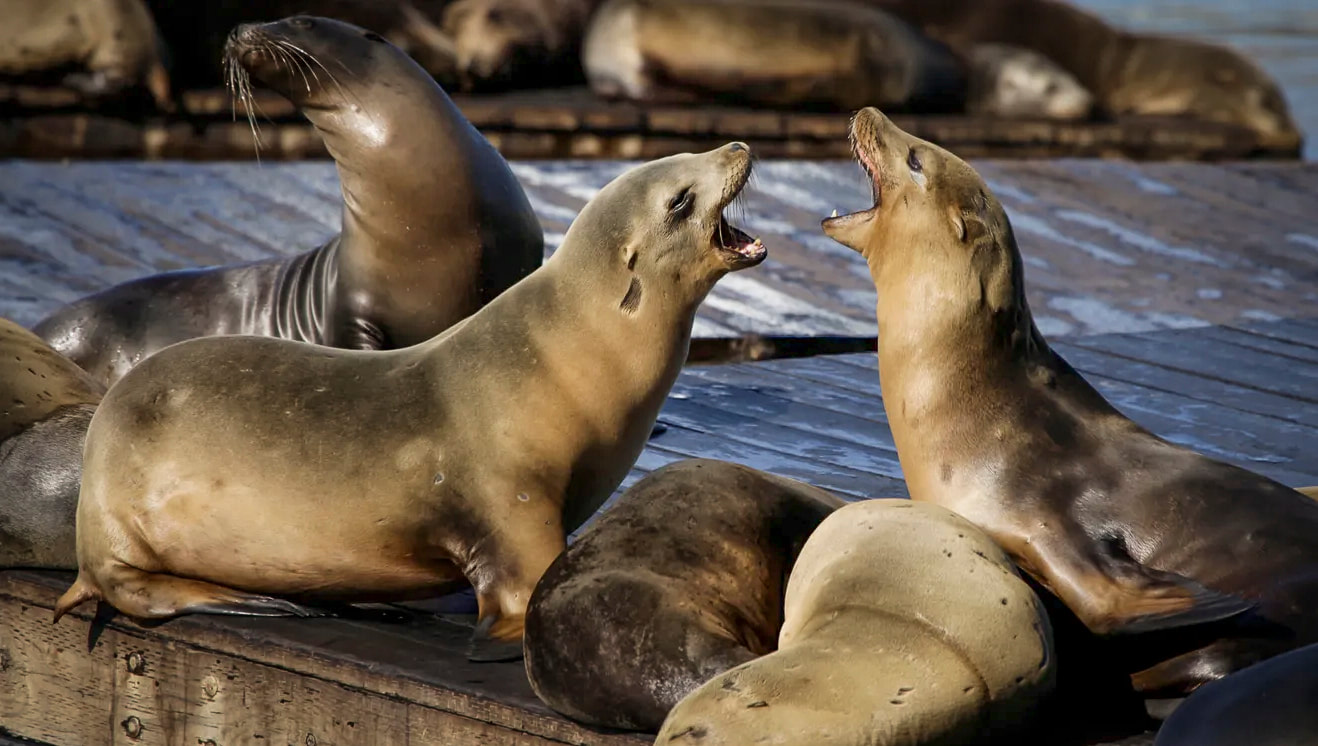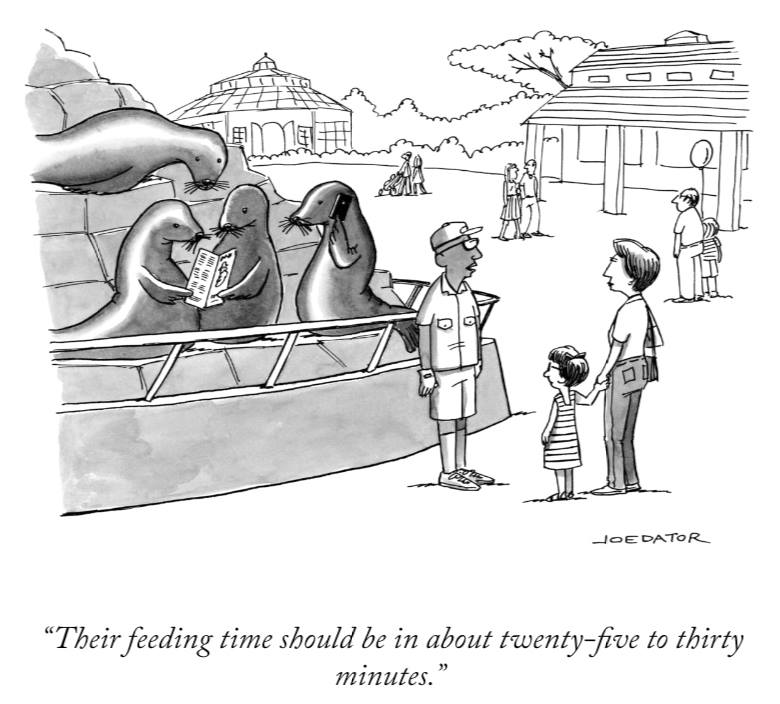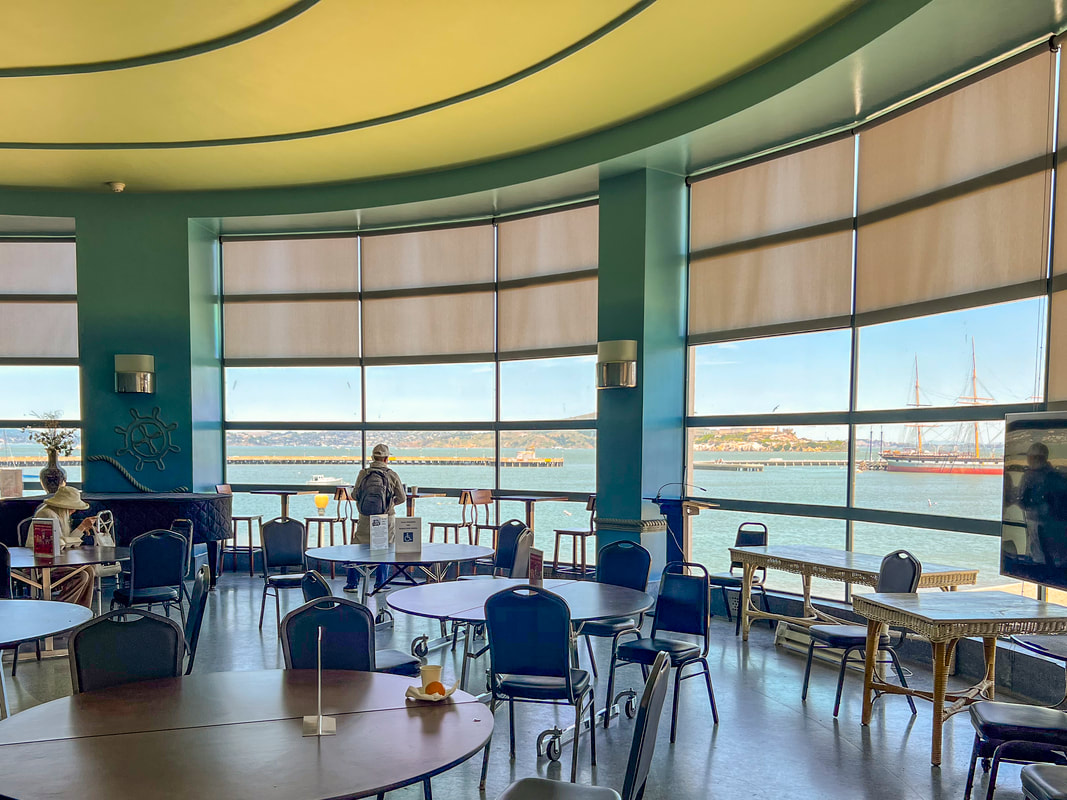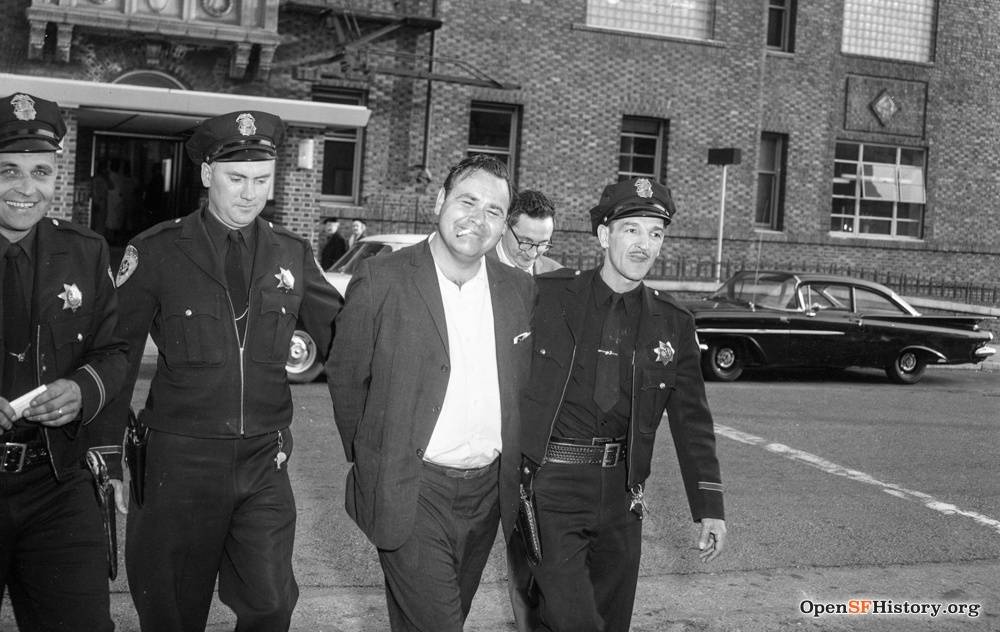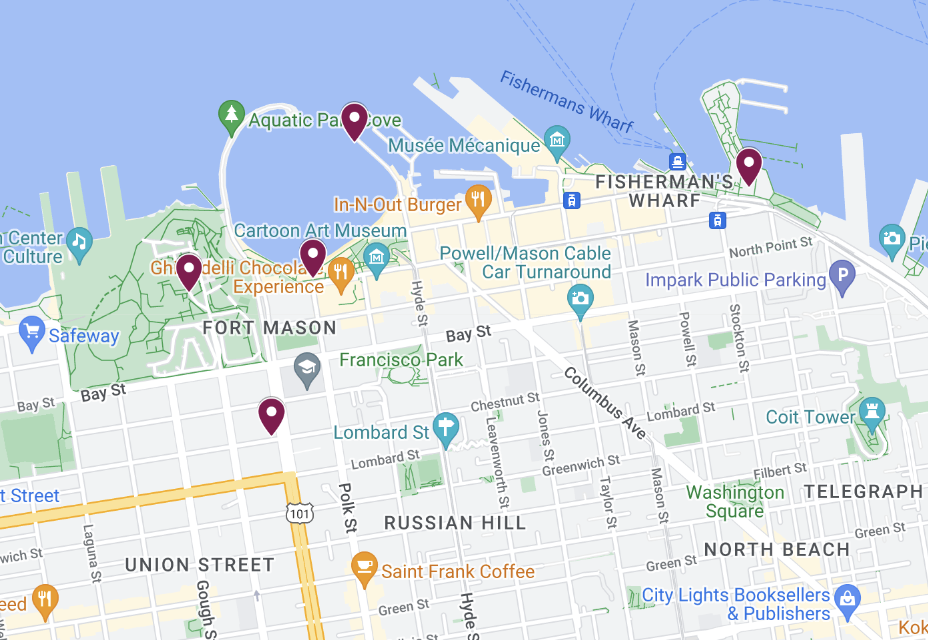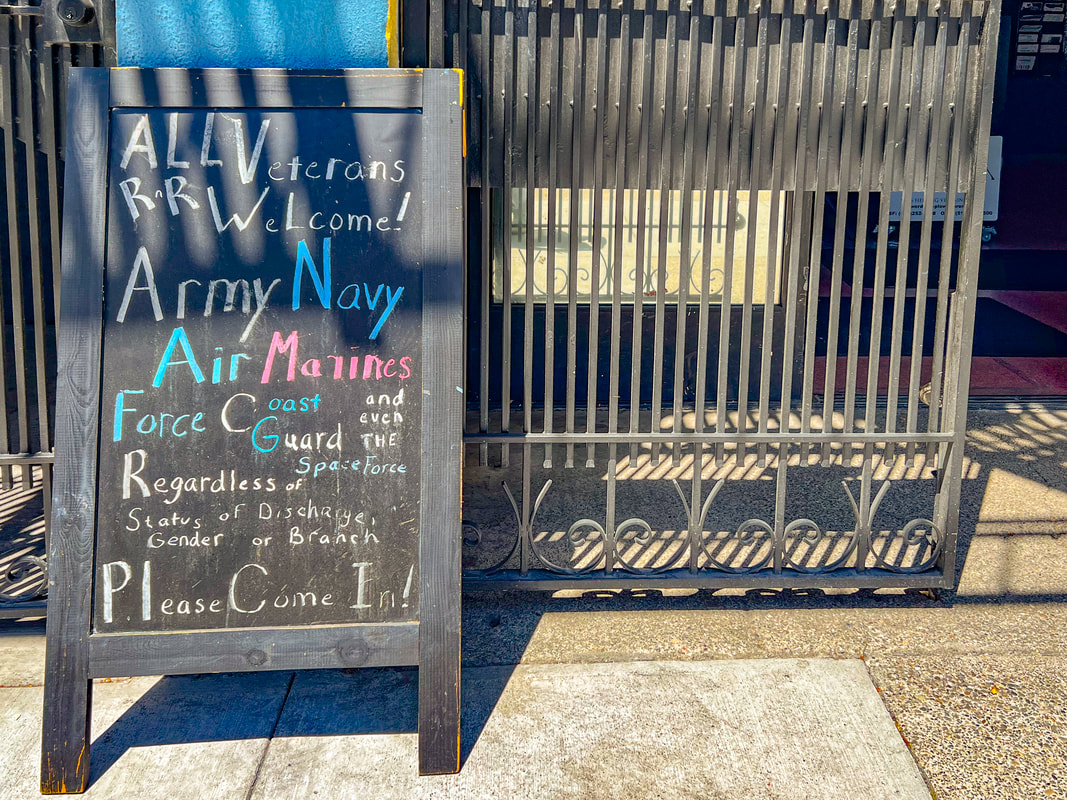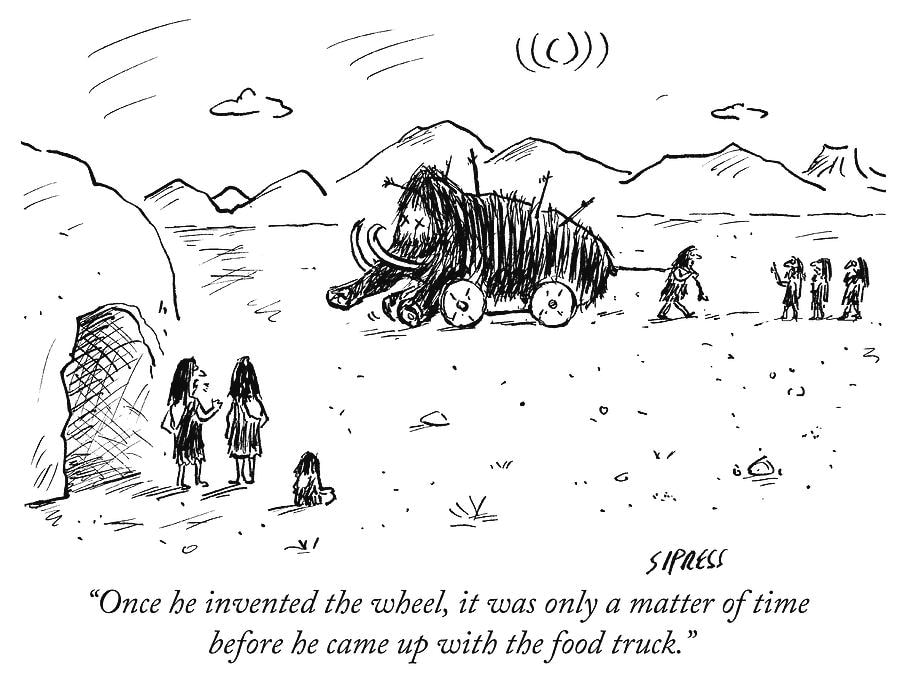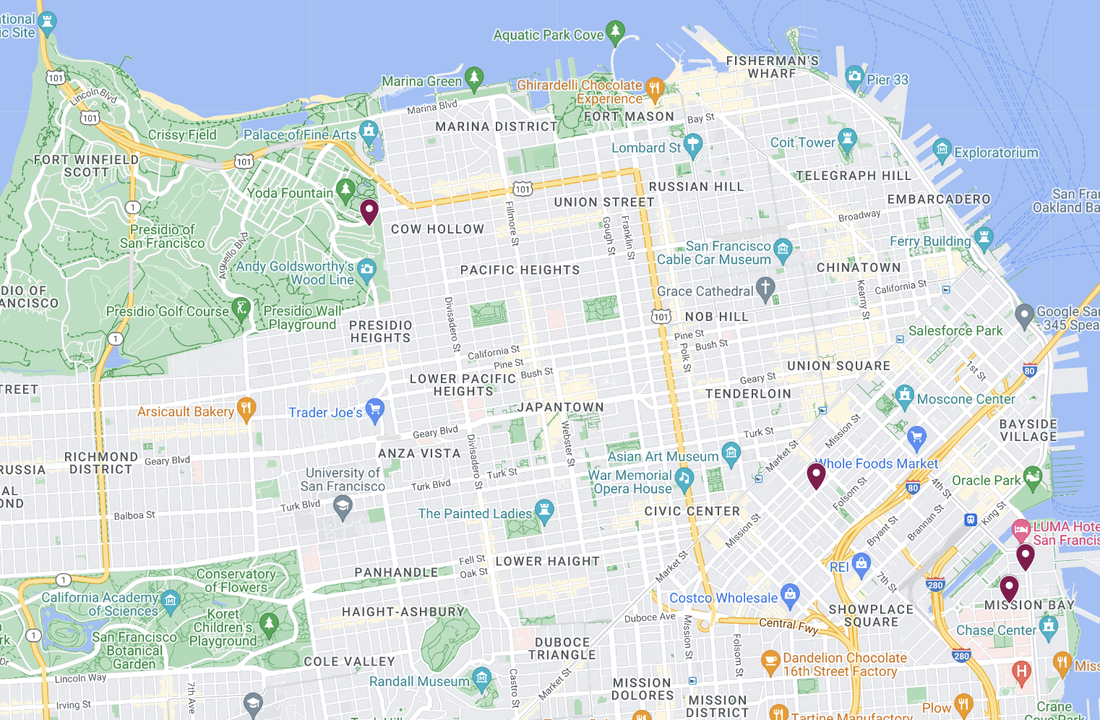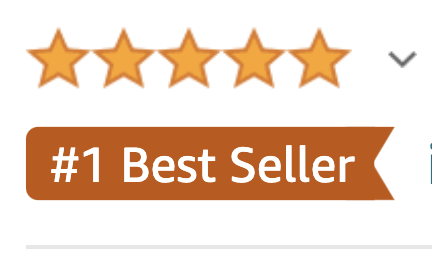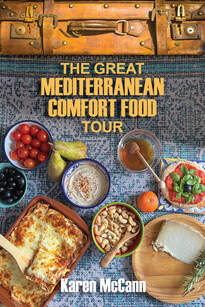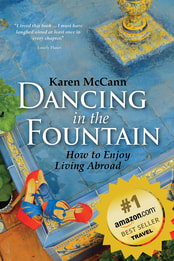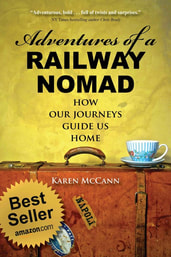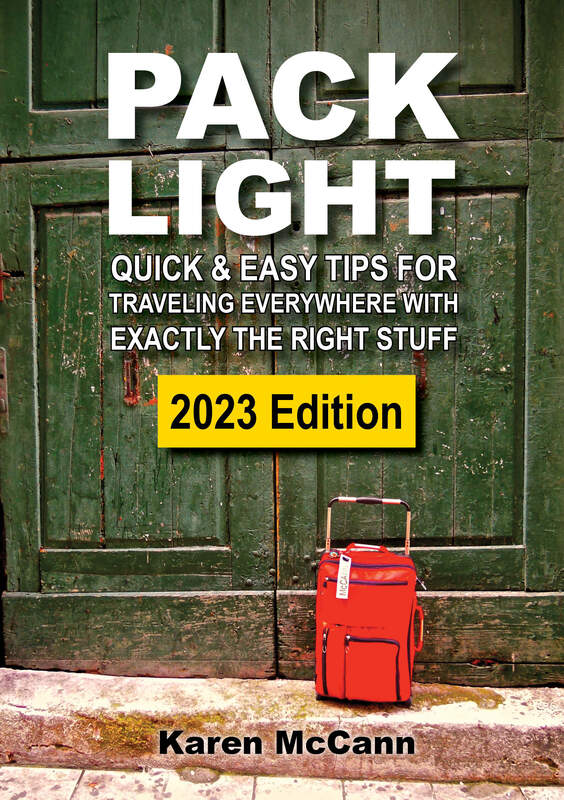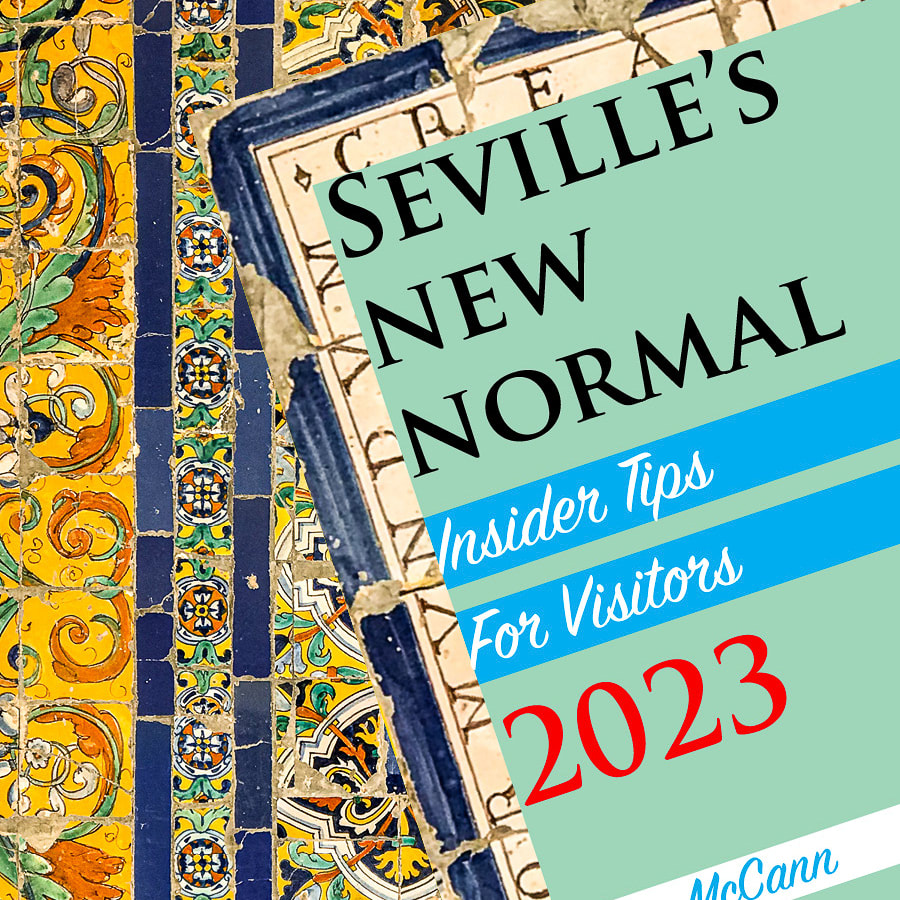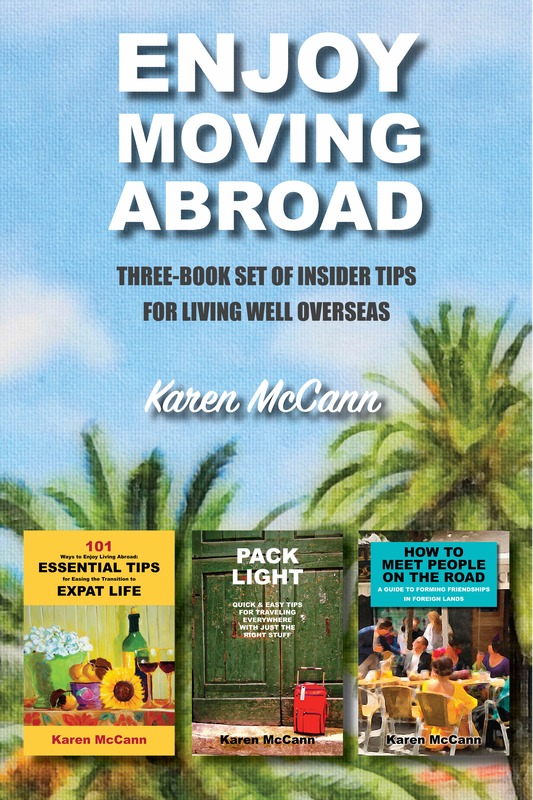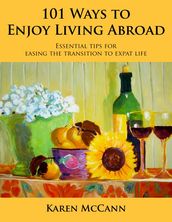|
The day is an open road stretching out before you. Roll down the windows, Step into your life, as if it were a fast car. —From Barbara Crooker’s Promise Along with strong black coffee, a bracing poem is one of my favorite ways to start the day. By the time I reach the breakfast table, carrying my steaming mug of Italian Roast and a bit of poetry, I’ve already glanced at the morning headlines and am holding on to my sanity (if at all) by my fingernails. I sometimes find myself clinging all day to a single line as if it were a rope thrown from a passing ship. “Still I rise,” I mutter, blessing Maya Angelou for this mantra when events seem hell bent on bringing me to my knees. “Still I rise.” I also cling to the wisdom of Karen Shepherd’s poem written in the voice of her dog, Birch. Are you gonna eat that? Are you gonna eat that? Are you gonna eat that? I’ll eat that. A blessed reminder of the way our best friends live in the moment and keep a firm grasp on life’s true priorities. I can’t imagine getting through a single day without the company of the written word to comfort, inform, and inspire me. How do the 57.4 million Americans who can’t read survive? Many don’t, and studies show the turning point comes in fourth grade. Any kid who doesn’t learn to read by the end of that school year has a two out of three chance of ending up in jail or on welfare. One of our local authors is trying to give children better odds. You may remember Dave Eggers for his modestly titled, Pulitzer-finalist bestseller, A Heartbreaking Work of Staggering Genius. His technothriller The Circle is a movie on Netflix and the subject of the new documentary To Be Destroyed, which discusses why his book was banned in Rapid City, South Dakota and designated "to be destroyed." But to thousands of kids, Eggers is the guy who started 826 Valencia, a nonprofit that provides free tutoring services to help youngsters develop the skills and vision to express themselves through creative writing. It's also a pirate store. If you're planning to sail the Seven Seas, here's where you can stock up on such swashbuckling accoutrements as spyglasses, eyepatches, peg legs, Jolly Rogers, and of course, bottles of giant squid repellant, leech-based gangrene cures, and Scurvy Begone. The building’s zoning required a commercial venture, and Eggers figured, rightly, that selling pirate paraphernalia would attract youngsters (of all ages). Opened in 2002, the store took its name from the address — 826 Valencia — in San Francisco’s Mission District. Upstairs Egger installed his publishing company, McSweeny’s, and volunteers from his staff started teaching youngsters about writing as an act of courage and imagination. The kids’ best work was published, sometimes with forwards by public figures such as Gavin Newsom (then San Francisco’s mayor, now California’s governor) and Robin Williams. “We have to go check it out,” I told Rich. “You had me at pirate store.” We took the ferry to the city and hopped one of the vintage trollies, which let us off at the north end of Valencia — which, as we soon learned, is the dodgy end. Picking our way past shuttered storefronts and the occasional sidewalk sleeper, we stopped for coffee at Carlin’s café and laundromat. The staff was welcoming, my croissant was buttery perfection, and our espresso was as zingy as the bright ceramic cups it came in. “And as if that wasn’t enough,” Rich said, “I get to look through this glass wall here and watch some guy folding his clean underwear!” After this refreshing pause, we strolled south to the more vibrant section of Valencia Street, with its oddball shops and the famous murals of Clarion Alley. When we reached the Pirate Supply Store, Rich ambled about happily investigating its treasures while I worked my way to the back so I could peer into the kids’ now-empty workspace. “We have 38 kids in the summer program,” explained a young associate named Brynn. “With our school outreach programs, we’re serving a thousand kids in the city.” The organization has opened chapters in eight other US cities and established 826 National and 826 Digital, touching the lives of 710,000 American students and countless more in nine other countries. Well, shiver me timbers, mateys — that’s a lot of budding writers! Fair winds to them all. A block further on, we encountered the scrappy, old-school Dog Eared Books, lone survivor of the nine bookstores that once graced Valencia Street. Modernization? Don’t make them laugh. Sales receipts and inventories are still written by hand in an atmosphere of creaky wooden floors and the heady scent of vintage paper. “You can find the answers on the Internet in a split second,” long-time Dog Eared customer Bryan Foster once told journalists. “But unless you read books, you don’t know what the questions are.” Finding the right questions and answers is never easy, and it’s particularly tough in parts of the US where access to "inappropriate" books is restricted. That’s why the Castro’s famous LGBTQ+ bookstore, Fabulosa, launched the grassroots, donation-funded Books not Bans project, shipping free books to areas where gender-themed works are taboo. In a similar spirit, the national Banned Book Club provides free digital versions of a wide range of banned subjects. What makes a book “inappropriate”? In 61% of cases, it’s sex. I used to think teenage boys were the most sex-obsessed creatures on earth, but it’s clear they’ve been surpassed by conservative school board members. These officials have denounced thousands of books — To Kill a Mockingbird, Like Water for Chocolate, and Peter Pan, for instance — over alleged “sexual content.” And it could get worse soon. You may have heard of the Heritage Foundation's Project 2025 — a blueprint for overhauling the government along more conservative lines. Page five of the 922-page document defines as “pornography” any book contributing to the "sexualization of children” (see list above!). They want “porn” like Peter Pan outlawed nationwide so that educators, booksellers, and librarians selling or lending these books would face criminal prosecution as sex offenders. That’s seriously nuts. While we're growing up, books are supposed to help us learn about sex, and love, and how relationships work. Stories teach us about fairness and honor, betrayal and heartbreak, compassion and cruelty. Novels show us that monsters are real, and that they can be beaten — but sometimes aren’t. Books help us rehearse for real life. They let us catch glimpses a larger world, cope with loss, and begin to dream of the kind of person we want to be. Saying books shouldn’t teach us about the realities of life is as ridiculous as telling a dog it’s unseemly to stick his head out the car window. Everyone has the right to experience, if only metaphorically, the glorious rush of wind in our face as we drink in the full, tumultuous wildness of the world, grinning from ear to ear. And that’s why I read poetry every morning: to revel for a moment in the rapture of being alive.
A walk down Valencia Street will lead you to all these places, plus incredible eateries and more oddball shops. Fabulosa Books is a mile east in the Castro; we had lunch out there, enjoying the Frango Acebolado (Chicken with Onions, $20) in the Brazilian Café del Casa.
NO POST NEXT WEEK I'm away at a family reunion in the mountains with no wifi. SUBSCRIBERS If you miss a post announcement, please check your spam folder. Internet security is in a frenzy these days. This post is part of my ongoing series OUT TO LUNCH IN CHEAP & CHEERFUL SAN FRANCISCO My goal is to discover some of San Francisco's most colorful neighborhoods so I can check out what's really going on in this zany town. Are we in a doom loop? Already on the rebound? Still fabulous? And where should we eat afterwards? These and other questions will be explored in upcoming posts. BROWSE PREVIOUS POSTS HERE DON'T MISS OUT! If you haven't already, take a moment to subscribe so I can let you know when I publish my weekly posts. Just send me an email and I'll take it from there. [email protected] And check out my best selling travel memoirs & guide books here. PLANNING A TRIP? Enter any destination or topic, such as packing light or road food, in the search box below. If I've written about it, you'll find it.
10 Comments
I don’t know if you’ve firmed up your plans for entering the afterlife, but until recently I favored the viewpoint popularized by that old reprobate Woody Allen: “I’m not afraid of death, I just don’t want to be there when it happens.” Now I’ve learned this is an old-fashioned attitude that has failed to keep pace with modern trends. Baby Boomers are giving up the ghost at a rate of 2.6 million year, and a hot new industry is helping us exit with dignity, grace, and that 1960s I-gotta-be-me spirit. “I want to die at sunset. I want to watch the sky change and turn orange and pink and purple,” says Alua Arthur in her TED Talk. “I want to hear the wind fluttering through the trees, and smell very faintly nag champa amber incense … I want to die with my socks on my feet, because I get cold. And if I die with a bra on, I’m coming to haunt everybody.” Yikes! I’m obviously way behind the curve, because it never occurred to me to think about what undergarments I’d like to wear as I cross the Rainbow Bridge, nor have I considered optimal lighting or fragrances. Luckily it’s not too late to get my final act together, says Arthur, America’s most famous death doula. What’s a death doula, you ask? You may have heard of birth doulas, who provide physical, emotional, and informational support to women during childbirth. A death doula does much the same thing for those getting ready to depart this world. Because despite what Woodie says, you will be there when it happens. And chances are you’ll find yourself considerably easier in mind, body, and soul if you do a little prep work to get ready for your swan song. It sounds sensible, but I have to admit, when people I knew organized a death doula talk, I wasn’t madly keen. “Do we have to go?” I asked Rich. “Sounds a little depressing.” With typical husbandly sensitivity, he told me not to be a wimp; we might learn something useful. And we did. For a start, I learned that many attendees felt a similar eye-rolling reluctance, and yet within ten minutes we were all jumping in to talk about our own mortality. We discussed getting our affairs in order, assessing medical interventions, and maintaining the kind of autonomy that makes life worth living. To keep the conversation rolling, our death doula, Rebecca Jones, produced a death deck of cards with thought-provoking questions. And she introduced us to the idea of death cafés, where strangers meet to eat cake, drink tea, and discuss death in a safe, confidential, supportive environment. “We could organize a death café,” Rebecca said. “But there’s a national organization that owns the name. We would have to call it something else.” “From a marketing standpoint, a change of wording might not be bad,” I commented. “We could call it a ‘death group,’” she mused aloud. “Actually, the word ‘café’ wasn’t the one I thought might be off-putting,” I said. I’m not the only one who feels reluctant to use the d-word. “In my family, we don't really talk about death,” says health journalist Sara Kliff. “Because I am as terrified of having serious end-of-life conversations as the next person… ‘Death’ is the word that confuses the conversation, that makes people too afraid, and too angry, and too frantic to keep talking.” Rich likes to think of death as a journey, the ultimate luggage-free trip for which you don’t even need a toothbrush. Similarly, the poet Mary Oliver invites us to approach the transition with bright-eyed anticipation: “I want to step through the door full of curiosity, wondering: what is it going to be like, that cottage of darkness?” “So how do we cultivate that kind of curiosity?” I asked Rich. As usual, our solution was to organize a fact-finding day trip to San Francisco — in this case, to explore attitudes toward eternal rest. We began in the cemetery tucked behind the city's oldest building, the original 1781 adobe chapel known as Mission Dolores. Officially it’s named after St. Francis of Assisi, but everyone uses the old name taken from the nearby Arroyo de Nuestra Señora de los Dolores (Our Lady of Sorrows Creek). In the lovely, creepy cemetery, among the old roses, tilting tombstones, and meandering stone paths, there stands a somber image of the man who built the first missions: Father Junipero Serra. When I was a kid he was hailed as the hero who “civilized” California. Nowadays his work is viewed as cultural imperialism, converting (not always voluntarily) thousands of native Californians to Catholicism, European ways, and a lifetime of labor. Although many Miwok and Ohlone converts were said to be buried there, Rich and I couldn’t find any marked graves, just a statue inscribed “In prayerful memory of our faithful Indians” and a reproduction of an Ohlone hut. We did locate the final resting places of California’s first Mexican governor, wealthy landowners, and Irish and English fortune hunters. One of these was Yankee Sullivan, a champion boxer turned "shoulder striker," hired to prevent people from voting for candidates other than his employer. He was arrested by the infamous, self-appointed Vigilance Committee and died in jail of suicide or possibly murder. His tombstone says, “Thou shalt bring forth my soul out of tribulation and in thy mercy thou shalt destroy mine enemies." I didn’t get the impression Mr. Sullivan is resting all that easily. Stepping out of the cemetery into the largely Hispanic Mission District, I found a far more convivial attitude toward the afterlife. According to Mexican tradition, you never really die until your name is spoken for the last time. So people make a point of telling stories — often funny, outrageous ones — about the departed. Officially this happens November 1 and 2, Los Dias de los Muertos (the Days of the Dead), but memories are kept fresh year-round. I love this tradition and am doing my best to give my family and friends plenty to talk about after I’m gone. Eventually we made our way to the restaurant San Jalisco, named for the Mexican state that gave the world mariachi music, tequila, and Saint Toribio Romo, a martyred priest famous for miraculous assistance to immigrants seeking to cross the US-Mexico border. The restaurant was jammed with laughing people and grinning skeletons. We ordered a seafood cocktail called Levanta Muertos (Raise the Dead), which I expected to be blow-the-top-of-your-skull-off spicy but found surprisingly mild. “That’s never going to reanimate a corpse,” I said. Rich happily slurped up more shrimp. “True, but it’s giving me a new lease on life.” As I sat sipping beer among the eyepopping images of our common mortality, I realized that far from being gloomy, they were comforting reminders of the joy that comes from doing our best to live each day to the fullest. “When it’s over,” said Mary Oliver, “I want to say all my life I was a bride married to amazement. I was the bridegroom, taking the world into my arms… I don’t want to end up simply having visited this world.” INTRIGUED? Find a Death Café Near You Learn More About Death Doulas Watch Alua Arthur's TED Talk Discover the Death Deck Game Enjoy Mary Oliver's poem When Death Comes SUBSCRIBERS If you miss a post announcement, please check your spam folder. Internet security is in a frenzy these days. This post is part of my ongoing series OUT TO LUNCH IN CHEAP & CHEERFUL SAN FRANCISCO My goal is to discover some of San Francisco's most colorful neighborhoods so I can check out what's really going on in this zany town. Are we in a doom loop? Already on the rebound? Still fabulous? And where should we eat afterwards? These and other questions will be explored in upcoming posts. BROWSE PREVIOUS POSTS HERE DON'T MISS OUT! If you haven't already, take a moment to subscribe so I can let you know when I publish my weekly posts. Just send me an email and I'll take it from there. [email protected] And check out my best selling travel memoirs & guide books here. PLANNING A TRIP? Enter any destination or topic, such as packing light or road food, in the search box below. If I've written about it, you'll find it. “One day if I do go to heaven,” wrote columnist Herb Caen, “I'll look around and say, 'It ain't bad, but it ain't San Francisco.’” I don’t know if he’d be pleased or outraged by the headline, “Much-Maligned San Francisco Ranked 7th Best City in the World.” Clearly Mr. Caen would vote for his city to be proclaimed top banana; the rest of us are just relieved to get an honest assessment that doesn’t suggest it’s already in the dumpster. “Despite San Francisco’s meticulously documented challenges, job opportunities and infrastructure buildout pave the way as the world continues to rush in like it always has,” says Resonance Consultancy’s 2024 World’s Best Cities Report. “High salaries that draw global workers,” make it the “number one place for start-up innovation.” I’m convinced much of San Francisco’s bad press is due to readers being fed up with 175 years of journalists gushing about the city’s charm, creativity, and get-rich-quick opportunities. With all due respect to Mr. Caen, claiming that San Francisco surpasses Paradise itself may be a slight exaggeration. But there’s no denying that ever since the Gold Rush of 1849, the city has offered new arrivals the chance to build a better life. And among the earliest and most successful of those newcomers were the Italians. Of course, technically they weren’t Italians at the time. Unifying the kingdoms and city states of the Italian peninsula was still under discussion — by which I mean there was a power grab of Biblical proportions, with wars, insurrections, and revolutions wreaking havoc across the land, destroying property, crops, and economies, to say nothing of human life. Thousands of sensible families chose to leave the chaos behind and seek their fortune in the New World. “They were lured to California by the Gold Rush,” wrote historian Michael LeMay, “but instead of mining, most became wine growers, vegetable farmers, and merchants, giving rise to the Italian American folklore that ‘the miners mined the mines, but the Italians mined the miners.’” Many opened businesses in San Francisco’s North Beach district, soon dubbed “Little Italy,” and got to work introducing their new neighbors to the joys of espresso, biscotti, pizza, and chianti. Soon the city’s Italian-Americans were making headlines: baseball legend Joe DiMaggio, chocolatier Domingo Ghirardelli, mayor Joseph Alioto, singer and entrepreneur Antonietta Alessandro, poet and City Lights proprietor Lawrence Ferlinghetti, Joe Finocchio whose Prohibition speakeasy featured drag shows that put some extra roaring into the 1920s … there are so many to be proud of. These are the immigrant stories I was raised on: tales of everyone’s ancestors who arrived, often with nothing, to become part of the free nation George Washington called “the last great experiment for promoting human happiness.” Every Fourth of July, as we celebrate that experiment, I wonder what Washington and Jefferson would think of us now. In the mid twentieth century, North Beach became home base to the Beat Generation — or, as San Franciscans dubbed them, “beatniks,” a mashup of “beat” and the ending of “sputnik.” (For younger readers, sputnik was the first artificial satellite to circle earth, launched in 1957 by the Soviets, igniting the Cold War’s Space Race.). If you’re thinking the beatniks and the Italians made strange bedfellows, think again. Along with recipes for ossobuco and gelato, some arrived carrying passionate beliefs about the dangers of materialism, the value of the individual, and the sanctity of intellectual freedom. The Beats didn’t invade Little Italy, they grew up in its coffee houses, late-night bars, and home-style eateries like Mama’s on Washington Square. Rich was never a beatnik, but he does claim to be a quarter Italian on the Costello side of the family; perhaps that’s is why, in his youth, he spent so many Saturday mornings in North Beach eating at Mama’s. “Best breakfast in town,” he told me. “Let’s see what they offer for lunch.” But first, we had a few stops to make. If I’ve learned anything from living in Spain, it’s that it takes good, strong coffee to properly launch any excursion, and the area around Washington Square, the big, grassy park in North Beach, offered plenty of choices. We wandered into Mara’s, an old school bakery with two tiny tables, a dozen kinds of biscotti, and espresso powerful enough to make your eyes pop. The proprietor and a few old friends were taking their ease at the back table, chatting in Italian. After serving us, he returned to his conversation, and Rich and I settled at the other table, feeling as if we’d been magically transported to the old country. Nearby, across Washington Square, stood Saints Peter and Paul Church, located, rather ominously, at 666 Filbert Street. (For atheist readers, 666 is “the number of the beast” in the Bible’s Book of Revelation. Scholars differ on its exact significance but agree it’s got such dreadful karma that they invented a special term for fearing this number: hexakosioihexekontahexaphobia.(Don't ask me to pronounce it.) Undaunted, when we'd drained our last drops of espresso, Rich and I walked over to check out the church. Movie buffs might recognize it from the sniper scene in Dirty Harry and from San Andreas, where it was pulverized by an earthquake and tidal wave. Which is ironic, as the original 1884 building actually was destroyed in the earthquake of 1906. After it was rebuilt in 1924, it survived five separate bombing attacks by anti-Catholic anarchists. That’s some wonky karma! After strolling about the neighborhood a while, we eventually fetched up at Mama’s, which was bright, cheerful, and packed with people of every age, race, and background, all talking at once. I stood at the counter to place my order with a tall, robust man who turned out to be the original owners’ grandson. “I used to come here fifty years ago,” Rich told him. Our host grinned. “Welcome back!” he said warmly, a publican with enough experience — and kindheartedness — to make it sound authentic. As we sat down, I asked Rich, “Is it as good as you remembered?” “Hasn’t changed a bit,” he said happily. I was delighted to hear it, as revisiting old haunts can be tricky, infused as they are with unreliable memories. “San Francisco isn’t what it used to be, and it never was,” said Herb Caen. “But when there’s a good bar across the street, almost any street, and a decent restaurant around almost any corner, we are not yet a lost civilization.” In 1997, San Francisco marked Mr. Caen’s passing with a spectacular fireworks display over Aquatic Park that ended with a pyrotechnic image of the manual typewriter he called his “Loyal Royal.” And everyone imagined him standing at the Pearly Gates, looking around, saying, “It ain’t bad, but …” WHY I WON'T BE POSTING NEXT WEEK I'm taking time off to celebrate the Fourth of July in the traditional California manner: refurbishing our go bags and restocking our Apocalypse Chow Food Locker. Wildfire season is upon us, and we're currently on a Red Flag Alert for possible evacuation. Wish me luck! SUBSCRIBERS If you miss a post announcement, please check your spam folder. Internet security is in a frenzy these days. This post is part of my ongoing series OUT TO LUNCH IN CHEAP & CHEERFUL SAN FRANCISCO My goal is to discover some of San Francisco's most colorful neighborhoods so I can check out what's really going on in this zany town. Are we in a doom loop? Already on the rebound? Still fabulous? And where should we eat afterwards? These and other questions will be explored in upcoming posts. BROWSE PREVIOUS POSTS HERE DON'T MISS OUT! If you haven't already, take a moment to subscribe so I can let you know when I publish my weekly posts. Just send me an email and I'll take it from there. [email protected] And check out my best selling travel memoirs & guide books here. PLANNING A TRIP? Enter any destination or topic, such as packing light or road food, in the search box below. If I've written about it, you'll find it. So Rich and I are racing back to the San Francisco Ferry Building in hopes of catching the early boat home when we are stopped by an old, shaggy curmudgeon who wants to pick a fight with our Waymo driverless taxi. First he stands in its path, glaring furiously at the empty driver’s seat. Strict programming protocols make it impossible for the vehicle to move. I pass the time picturing the ferry pulling away without us. Then the curmudgeon reaches over and dislocates the driver’s side mirror, bangs on the front passenger window, and punches the trunk a few times. So there! I feel lucky he’s not urinating on the tires. When he moves off, our Waymo rolls forward another few yards to the curb, and Rich and I spring out. The curmudgeon yells at us, “You’re old enough to know better!” As if we’d rehearsed it, Rich and I reply in unison, “So are you, sir!” “You’re a disgrace to the human race!” the curmudgeon hollers. Rich tosses out another “So are you, sir!” but I’m too breathless to engage in any more amusing banter as I trot toward the dock. Luckily, the boat is running late, and we make it with minutes to spare. As we drop into our seats Rich says, “A disgrace to the human race?” “That nutter is clinging to the past when he’s already living in the future. He feels his world is sliding out of his control.” And don’t we all feel that way sometimes? Shortly before he sold America’s very first gas-powered car in 1898, Alexander Winton was told by his banker, “You’re crazy if you think this fool contraption you’ve been wasting your time on will ever displace the horse.” We’re all struggling to accept a future that’s dizzyingly different than expected. Which is why Rich and I had spent the morning in the headquarters of a group of futurists devoted to thinking about the next 10,000 years. We thought it might lend some perspective. The leader of this merry band of imaginators is Stewart Brand, creator of the 1960’s iconic Whole Earth Catalog. “It was one of the bibles of my generation,” Steve Jobs said in his 2006 Stanford commencement address. “It was sort of like Google in paperback form, thirty-five years before Google came along. It was idealistic, overflowing with neat tools and great notions.” He told the graduates his wish for them was encapsulated in the final sign-off on Whole Earth’s last issue: “Stay hungry. Stay foolish.” I imagine those Stanford grads rolling their eyes and wondering how that would help them repay $100,000 in college loans. But I was glad he said it anyway. In the year he likes to call 01996, Brand gathered like-minded visionaries to create The Long Now Foundation, which aims to provide a counterpoint to today’s “faster/cheaper” mindset by promoting “slower/better” thinking. They launched all sorts of quirky projects: the 10,000 year clock hidden in a remote West Texas cave; the Rosetta Disk, etched with 13,000 teeny tiny pages of information in 1500 human languages; and a library attempting to address the question, “What books would you want if you had to restart civilization from scratch?” Along with, “Where do you house the collective wisdom of our species?” The answer to this last question is: in a café-bar on an old decommissioned military base on San Francisco’s north coast. The Interval is part of the Fort Mason Center for Arts and Culture and serves as a library, gathering space, and mothership for the Long Now Foundation. “Just as Stonehenge and the Pyramids help us imagine our long past, The Clock invites us to image our long future,” says Danny Hillis, who helped design the clock and, in his day job, developed the concept of parallel computers that is now the basis for most supercomputers (and please don’t ask me what any of that actually means). Overhead are books about science, technology, art, and the future, including — I was delighted to learn — such banned books as Dune, Brave New World, the Hugh Howley novels that inspired the TV series Silo, and of course, The Time Machine by HG Wells. On lower shelves are a hundred well-thumbed books that we were invited to browse through while enjoying our cappuccinos. “Do you know Stewart Brand?” I asked the young barista. Her whole face lit up. “Yes, he’s like a ball of sunshine. He is so full of life and energy.” How do some people manage to scamper into old age bright-eyed and bushy-tailed? I’ve given the question considerable thought, and I'm not the only one; social scientists are studying clusters of such oldsters, known as the Blue Zones. You may have read Dan Buettner’s books about them or seen the Netflix documentary Live to 100. Long-time readers will remember Rich and I visited the Blue Zone island of Ikaria in 2019, where we attended an all-night party with people in their nineties and hundreds. As we stumbled out the door around two in the morning, a ninety-three-year-old acquaintance — the one who had opened the dancing many hours earlier — was leading yet another laughing young woman out onto the dance floor. Inspiring indeed! So you can imagine how excited I was to discover this week that the nearby town of Petaluma has engaged a Blue Zones Project team to help them reconfigure public spaces and social patterns to encourage longer, healthier lives. Projects like this are happening across America. “The results are stunning,” according to Dr. Walter Willet of Harvard’s school of public health. How stunning? According to the Blue Zones website, Beach Cities, California reduced obesity by 25% and smoking by 36%. Albert Lea, Minnesota saw healthcare claims drop 49% and life expectancy rise by three years. (See more results here.) I’ll keep an eye on Petaluma’s effort and let you know how it goes. One of the cornerstones of the Blue Zone lifestyle is a plant-based diet, and right next door to The Interval is Greens, “the restaurant that brought vegetarian cuisine out from sprout-infested health food stores and established it as a cuisine in America,” according to the NY Times. Little has changed in Greens since it opened 1979; its redwood sculptures, view of the bay, and cuisine all remain spectacular. At $20, my portobello burger with roasted poblano aioli wasn’t exactly cheap eats, but boy, was it worth it. Afterwards, Rich summoned a driverless taxi, and we headed to the ferry building and our encounter with the curmudgeon. And while he's clearly a nutter, the curmudgeon does have a point. Anyone with any sense worries about the profound changes AI will bring in the next decade, let alone the next 10,000 years. So how can we up our chances of survival? Folks in the Blue Zones rely on community, and Stewart Brand says, “It's become clear what is the prime survival tool for hard times: friends. Good friends. Lots of them.” Words to live by. Subscribers If you don't get a post announcement every week, check your spam folder. Internet security is in a frenzy these days. This post is part of my ongoing series OUT TO LUNCH IN CHEAP & CHEERFUL SAN FRANCISCO My goal is to discover some of San Francisco's most colorful neighborhoods so I can check out what's really going on in this zany town. Are we in a doom loop? Already on the rebound? Still fabulous? And where should we eat afterwards? These and other questions will be explored in upcoming posts. BROWSE PREVIOUS POSTS HERE DON'T MISS OUT! If you haven't already, take a moment to subscribe so I can let you know when I publish my weekly posts. Just send me an email and I'll take it from there. [email protected] And check out my best selling travel memoirs & guide books here. PLANNING A TRIP? Enter any destination or topic, such as packing light or road food, in the search box below. If I've written about it, you'll find it. No matter how often you see it on TV, it’s still shocking to come home IRL (in real life) to find your street blocked off by cop cars and crime scene tape. When it happened to us the other day, I craned my neck searching for clues while Rich drove slowly past our street and tried to turn down the next — only to be stopped a fledgling police officer. “You can’t come this way,” the kid announced importantly. “Why not?” asked Rich. “It’s confidential.” Confidential? Who was he kidding? This is San Anselmo, a town so small that if you sneeze walking out your front door, the first person you see will hand you a Kleenex and the next three will inquire about your allergies. Rich drew breath to protest, but I said, “Let it go. If he tells you, he may have to kill you. Besides, we’ll find out soon enough.” We circled home the back way and discovered, with considerable relief, that our house was not part of the hullaballoo. Neighbors soon filled us in; someone had called in a bomb threat to the nearby public library because of Drag Story Hour. Now, I realize that Drag Story Hour for kids is not standard Saturday morning fare in all public libraries across this great nation. But here in the San Francisco Bay Area (and many other parts of the US), it’s become a tradition during June’s LGBTQ+ Pride Month. “Join us for stories, songs, and laughs,” said my town’s website. “Drag Story Hour is a form of performance art that captures the imagination and play of childhood while giving kids a glamorous and positive view of a person being their authentic self.” For anyone who can’t fully embrace the idea, there’s a simple solution: skip the story hour. But that didn’t satisfy one disgruntled individual, whose sentiments could only be expressed with a bomb threat. Because nothing teaches children about decent behavior like lawless aggression and false statements to the police. No bomb was found, and the crime scene tape and cop cars soon disappeared. Still visible all over town were rainbow flags and store displays celebrating Pride Month. And this was nothing compared to what was happening in San Francisco, currently gearing up for the June 30th extravaganza known as the Pride Parade. “Let’s head over to the Castro,” I suggested to Rich. “Show our support.” The Castro is San Francisco’s famous “gayborhood.” It began gathering strength during WWII, when the US military decided to discharge thousands of trained soldiers in the erroneous belief their sexual preferences somehow made them unfit to fight Nazis. Fortunately this attitude no longer prevails, and these days the US Department of Defense officially honors Pride Month. "Pride is a celebration of generations of LGBTQ+ people who have fought bravely to live openly and authentically,” Commander-in-Chief Joe Biden said last month. "This country is stronger and more just when America's leaders reflect the full diversity of our nation." As the Castro lies six miles from the Ferry Terminal, Rich and I hopped on one of the F line’s vintage trollies, bought from other cities, refurbished, and now providing a pleasantly retro ride. We stepped off near the intersection of Market and Castro Streets and found ourselves, as expected, surrounded by rainbows. The rainbow flag, now flying worldwide, was created here thanks to SF Supervisor Harvey Milk. Arriving from New York in 1972, he became the unofficial mayor of Castro Street, rallied the LGBTQ+ community, and in 1977 became the first openly gay man elected to public office in California. Knowing the community needed a symbol, Milk asked gay activist and artist Gilbert Baker to dream up something for 1978’s San Francisco Gay Freedom Day. Apparently Gilbert was out on a dance floor when he had an epiphany about a rainbow; historians believe drugs may have been involved, and I’m inclined to believe them. Gilbert’s vision was translated into a 30 x 60 foot flag with eight colors. Later versions eliminated the pink and turquoise because those colors were hard to find in traditional flag fabrics. Go figure. Since then there have been countless permutations of the rainbow flag, and the original, damaged and thought lost for many years, was rediscovered, repaired, and returned home to San Francisco in 2021. You can see it in the small, deeply moving GLBT Historical Society Museum just off Castro Street. Younger readers may not remember the days when same-sex canoodling was a very serious crime throughout America. Vice squads regularly raided LGBTQ+ hangouts, publishing names and photos in the newspaper, destroying careers, families, reputations, and lifelong friendships overnight. And then came jail. Expressing non-conformist sexuality was not for the faint of heart. Thanks to activists, laws began to change (slowly) in the 1960s. One magnificent gesture of defiance came in 1973 after lesbians Mary Ellen Cunha and Peggy Forster took over Twin Peaks Tavern, a 1930s Irish pub on Castro Street. Years earlier, the tavern’s huge windows had been painted black so wives couldn’t peer in to see if their husbands were at the bar drinking away their paycheck. The two lesbians had the paint scraped off, sending a message to the community: it was time to stop hiding. “The bar has come to be a cornerstone within the community,” wrote Petey Barma and Bret Parker, who made the delightful Through the Windows documentary about Twin Peaks Tavern. “A place that changed the face of gay bars in the 70's, a refuge during the AIDS crisis in the 90's, and throughout it all, a gathering place: our very own ‘Cheers for Queers.’" Rich and I promised ourselves beers at Twin Peaks later, but first we visited the museum, which honors the 40 million who died of HIV/AIDS. Then we strolled through the Pink Triangle Memorial, America’s first permanent landmark dedicated to LGBTQ+ Europeans persecuted by the Nazis during the Holocaust. To refresh our spirits after such sobering reflections, we had a hearty lunch in the whimsical 24-hour diner Orphan Andy’s. When the proprietor set down my giant bowl of soup, I said, “Wow, that’s generous!” They grinned. “It’s because we love you.” Awwww… We got an equally warm welcome at nearby Twin Peaks Tavern. I soon learned it was Mike the bartender’s first day, but everyone else looked like they’d been ensconced there since it opened, gazing contentedly out the windows and chatting with old friends. There and everywhere in the Castro, people were kind and friendly. Nobody seemed to embody the attitude I’d seen on a joking storefront sign, “I don’t mind people being heterosexual as long as they act gay in public.” I felt accepted for who I was. And that’s what the Castro is really all about. The whole day provided the perfect antidote to the mean-spirited attack on our public library’s Drag Story Hour. Isolating ourselves from those we view as different is not the answer. As Harvey Milk put it, “How can people change their minds about us if they don’t know who we are?” And underneath it all, how different are we, really? “We’re all born naked,” points out cross-dressing performance artist RuPaul, “and the rest is drag.” For more, check out: The Ten Best Things to Do in the Castro District Twin Peaks Tavern Documentary: Through the Windows Milk, the story of Harvey Milk's work & assassination Subscribers If you don't get a post announcement every week, check your spam folder. Internet security is in a frenzy these days. This post is part of my ongoing series OUT TO LUNCH IN CHEAP & CHEERFUL SAN FRANCISCO My goal is to discover some of San Francisco's most colorful neighborhoods so I can check out what's really going on in this zany town. Are we in a doom loop? Already on the rebound? Still fabulous? And where should we eat afterwards? These and other questions will be explored in upcoming posts. BROWSE PREVIOUS POSTS HERE DON'T MISS OUT! If you haven't already, take a moment to subscribe so I can let you know when I publish my weekly posts. Just send me an email and I'll take it from there. [email protected] And check out my best selling travel memoirs & guide books here. PLANNING A TRIP? Enter any destination or topic, such as packing light or road food, in the search box below. If I've written about it, you'll find it. When I first heard about the Short Story Vending Machine I was horrified. “Is this AI? Are robots plagiarizing published works by legitimate authors to compose cookie-cutter mini-novels while you wait? What fresh hell is this?” But no; I was charmed to be proven completely wrong. It turns out these stories are composed by actual humans. They (the stories, not the humans) are fed into the computerized brains of machines and delivered — for free — at the push of a button. Since 2016 French publisher Short Édition has placed Distributeurs d’Histoires Courtes all over the world to promote budding authors and the joy of reading. Yes, of course, San Francisco has one. It sits inside Frances Ford Coppola’s cozy, European-style Café Zoetrope on the corner of Kearny and Columbus. Rich and I spotted it a few weeks ago and were so intrigued we rounded up some friends and went back to sample the literature and the food, not necessarily in that order. I should have known that Coppola — the gifted screenwriter of Patton, Apocalypse Now, and, with Mario Puzo, the Godfather films — would make us an offer we couldn’t refuse: great Mediterranean food, generous glasses of wine, and as many extra helpings of short fiction as we wanted. My first was a sweet piece called Six Feet (“The distance between two not-yet lovers…”). The second began with a description of Astrid’s “abject terror” and ended 36 inches later with the words, “At least Astrid would die happy.” I am still trying to summon the nerve to read what lies between. Café Zoetrope is surrounded by icons of San Francisco’s freewheeling literary history: City Lights Bookshop, Jack Kerouac Alley, William Saroyan Place, the Beat Museum, the vintage writers’ bars Vesuvius and Twelve Adler. Nearby Beat poet Herb Gold penned these immortal words: Even well into my eighties I thought I was a young man. I knew I would die someday But the diagnosis would have to be He died of the complications of young age. “If free speech and individuality are American characteristics, there is no place more American than San Francisco,” said filmmaker Desi Del Valle. Sadly, her sentiments are not shared by everyone here in the land of the free. I was shocked to read this week that the American Library Association's Office for Intellectual Freedom documented 4,240 books targeted for censorship in 2023. In many school districts, a single challenge can require librarians to pull a book off the shelves while an inquiry is conducted. Then everyone gathers for a free and frank exchange of views involving plenty of shouting, table pounding, and name-calling. So what are they trying to keep kids from reading — and why? Mark Twain’s Huckleberry Finn: coarse language, uncomfortable commentaries on race Jack London’s Call of the Wild: mistreatment of animals. (His work was also burned by the Nazis for socialist sentiments.) Dashiell Hammett’s The Maltese Falcon: subversive communist views Shirley Jackson’s The Lottery: causing students “to question their values, traditions, and religious beliefs” Harper Lee’s To Kill a Mockingbird: “It makes people uncomfortable.” F. Scott Fitzgerald’s The Great Gatsby: violence, adultery John Steinbeck’s Of Mice and Men: anti-business attitude, homosexual overtones Alice Walker’s The Color Purple: sex, violence, homosexuality E.B. White’s Charlotte’s Web: They "found the book’s talking animals to be disrespectful to God." Kind of makes you want to re-read the classics, doesn’t it? How did I miss all this exciting subtext when I was in school? Now, I don’t mean to brag, but the most frequently banned book in America — for the last two years running! — was written right here in the San Francisco Bay Area. We’re so proud. The book is the graphic (in every sense) memoir Gender Queer, by Maia Kobabe, who uses the pronouns e, em and eir. (These gender-neutral Spivak pronouns date back to 1890 and are enjoying newfound popularity.) E started writing to explain to eir family what it means to be non-binary and asexual. Critics went ballistic over drawings providing explicit guidelines for teens navigating complex sexual situations. “It’s pretty worrying that a scene talking about consent is considered inappropriate for young people,” Kobabe said. Seriously, are there any parents out there who think their kids aren’t online — right now, this very minute — watching stuff that would make your hair curl? “Childhood is terrifying. Adults forget this,” says Dave Rudden, who writes for middle school kids. “I used to sandwich Goosebumps between two other books on the way out of the library so my mom couldn’t see the cover. She thought they were teaching me about monsters … except that the news exists, and kids talk to each other. I already knew there were monsters in the world … The series taught me that monsters were beatable. More than anything, it told me that there were other kids facing them too.” When it comes to navigating the world, ignorance isn’t bliss, it’s a blindfold. And for heaven’s sake, what do they expect kids to read? The Wizard of Oz? Harry Potter? Goosebumps? All banned. The Bible? The complaint listed “sexism, sex, violence, genocide, slavery, rape, and bestiality,” although to be fair it was a counterprotest to ultraconservatives. "What I tell kids is: Don't get mad, get even,” said Stephen King. “Read whatever they're trying to keep out of your eyes and your brain, because that's exactly what you need to know.” Last year, this poster inspired me to write Why Isn’t Anyone Banning My Books? This week, I decided I had to do more. I printed out the ALA’s list of the most frequently challenged books and walked around the corner to Town Books, the second-hand bookshop run by volunteers from the public library in my village. “I want to start a collection of banned books,” I said. “It’s the only way I know to fight back.” The two women staffing the desk poured over the list, exclaiming aloud over the titles. A woman on the far side of the shop called over, “They banned The Kite Runner? Why?” Another shopper pulled out her phone. “Yep. Here it is. ‘Fear that the novel would inspire terrorism and promote Islam.” “Have they even read these books?” someone asked. By now everyone was scanning the shelves and coming up with titles for my new collection. I bought an armful and said I’d be back soon for more. It was the most fun I’ve had in a bookstore in years. “We read to know we are not alone,” said C.S. Lewis (whose Narnia books have been banned). I cannot imagine my life without the company of books, without that sudden, glorious start of surprise when I read a line and an idea springs open for me. “A mind needs books as a sword needs a whetstone, if it is to keep its edge,” said George R. R. Martin (also banned). Thanks to writers, publishers, librarians, booksellers, and the Short Story Vending Machine, I’ll never run out of reading material to whet my imagination. It’s up to all of us to preserve our intellectual treasures for future generations, so they have something worth writing about in school book reports and worth thinking about for the rest of their lives. WHY I WON'T BE POSTING NEXT WEEK Rich and I have some family activities that will keep us too busy for excursions to San Francisco this week. But don't worry, I'll be back with all-new stories after that. This post is part of my ongoing series OUT TO LUNCH IN CHEAP & CHEERFUL SAN FRANCISCO My goal is to discover some of San Francisco's most colorful neighborhoods so I can check out what's really going on in this zany town. Are we in a doom loop? Already on the rebound? Still fabulous? And where should we eat afterwards? These and other questions will be explored in upcoming posts. BROWSE PREVIOUS POSTS HERE DON'T MISS OUT! If you haven't already, take a moment to subscribe so I can let you know when I publish my weekly posts. Just send me an email and I'll take it from there. [email protected] And check out my best selling travel memoirs & guide books here. PLANNING A TRIP? Enter any destination or topic, such as packing light or road food, in the search box below. If I've written about it, you'll find it. “The Tenderloin isn’t always easy on the eyes,” says the museum poster, in a massive understatement. “But what the neighborhood is missing in polish, it makes up for in grit and soul.” Thrill-seekers that we are, Rich and I decided to take a walk on the wild side this week and visit San Francisco’s most notorious district, the 31 square blocks known as the Tenderloin. Naysayers consider it the epicenter of the apocalypse where crime, poverty, and drugs are dragging San Francisco down into the ninth circle of Hell. Young friends tell me they go there often, without fear, for work and play. So what’s the truth? I decided go see. All this week, whenever I told friends that Rich and I would be touring the Tenderloin, I got horrified looks and questions about whether my shots, my running shoes, and my estate planning documents were all in order. I kept assuring everyone Rich and I had a very, very good chance of getting through the visit alive and unscathed. Not to keep you in suspense, we did. San Francisco’s Tenderloin is the last of its name in the nation, but a century ago many major American cities had a Tenderloin district where people went to commit shenanigans they didn’t want their neighbors to see. The name was allegedly coined in 1876 by NYC Police Captain Alexander “Clubber” Williams when he was assigned to a notorious red light district. Thrilled at the prospect of collecting higher bribes, he wisecracked, “I’ve been having chuck steak ever since I’ve been on the force, and now I’m going to have a bit of tenderloin.” Do-gooders keep trying to rename San Francisco’s Tenderloin, most recently in 2011 when PETA (People for the Ethical Treatment of Animals) pressured then-mayor Edwin M. Lee to call the neighborhood “the Tempeh District.” Not surprisingly, the idea of giving the Tenderloin a soy-based vegan makeover didn’t fly. Growing up in the Bay Area, I had a sketchy idea the Tenderloin’s history involved houses of ill repute, Prohibition-era speakeasies, LGBTQ bars, gambling joints, pinball parlors, jazz clubs, adult theaters, drug dens, and frequent police raids. Miles Davis, the Grateful Dead, Queen and other artists made music on its sound stages. Dashiell Hammett wrote The Maltese Falcon there. Muhammad Ali, George Foreman, and Sugar Ray Robinson trained in the boxing ring in the basement of the Cadillac Hotel. It was a happening place. But the tide of drugs and homelessness kept rising, and decades of election-year promises made by politicians to clean up this “zone of terror” were about as effective as most election year promises. Which is to say not at all. Luckily, the Tenderloin had its very own patron saint in Glide Memorial’s legendary pastor, Cecil Williams, and a street-savvy unofficial mayor called Del Seymour. Among his many forms of outreach and public service, Del provides tours of the Tenderloin. “There’s a rich history here. I show what’s vibrant in a neighborhood that’s considered ‘gritty’ and ‘seedy,’” he says. Filled with curiosity, Rich and I signed up and met Del at his headquarters. “I run a school, it’s called Code Tenderloin,” Del explained. “And what we do, we take people as they are, right off the street, out of our shelters, out of our missions, out of our tents … and we get them ready for jobs in the tech industry.” He also assigns people to stand on street corners and keep the peace. Judging by the complete lack of violence or even raised voices everywhere I went, they are good at it. Our first stop was Glide Memorial Church. When Cecil Williams became pastor in 1963, it was a sleepy congregation of a few dozen souls. He transformed it into a countercultural icon and one of the most famously liberal churches in America. His pastoral vision included caring for “the least of these” with everything from hot meals to genuine respect. After mandatory retirement at 70, he was hired as the Minister of Liberation, a post he held until last year; he passed last month at the age of 94. Today the Glide Foundation runs 87 social services such as childcare, after-school programing, emergency supplies, shelter beds, HIV testing, Covid vaccines, and three meals a day. “It’s fried chicken day,” Del said, as the heavenly smell wafted through the pristine dining room. “It’s very popular.” Del wasn’t kidding about the chicken's popularity; the line outside extended for blocks. As we walked along it, I can tell you that yes, the general look was pretty rough — somewhere between the barroom scene in Star Wars and a demilitarized zone. But everyone was remarkably well-behaved; nobody was about to jeopardize their chance at that fried chicken. Dozens greeted Del by name, with a smile, a handshake, a few words of appreciation. Our tour took us all over the neighborhood: to the lively and engaging Tenderloin Museum, St. Anthony’s free family medical center, America’s first official Transgender community, and a new housing project. I began to appreciate the complex web of financial support — from government, churches, community groups, and private donors — that enabled 25,000 marginalized residents to come together and function, however loosely, as a community. I suppose to some this must seem like rearranging deck chairs on the Titanic. You might be wondering if there’s any point. Can the cycle of poverty and drugs be broken? Are such lost souls ever saved? Well, just ask Del about that. Del's life started off much like Rich’s, with Catholic schools and military service in Vietnam. After that he became a firefighter in LA, with a home and family. “Then I came to San Francisco, ran into a neighborhood called the Tenderloin, and to make a long story short, it took me 18 years to get that crack pipe out of my mouth,” he said in his TED talk. “Living homeless, living in tents — when I wasn’t in jail.” Then one day Walter Hughes, an elder of the Tenderloin’s San Francisco Christian Center, met Del in a park, bought him a suit, and invited him to church. “They embraced a crackhead in the middle of the church.” I could hear the awe and gratitude in Del’s voice as he recalled that day. “And we prayed together, we cried together. He wasn’t pushing me. He just started showing me the way to a better life.” Del's words reminded me of the old story about a man walking along the beach after a storm had washed up thousands of starfish on the sand. He picked up one and threw it in the water, then another. A passerby said, “What are you bothering with that for? There are way too many, you’ll never make a difference. “ The man threw another into the sea. “Made a difference to that one.” Taking the Tenderloin tour was a valuable reminder that the world is full of stranded starfish; sometimes we’re one of them, sometimes we’re the guy on the beach, and sometimes we’re the passerby, wondering how to make sense of it all. Del's Tenderloin Tour: [email protected] The Tenderloin Museum: 398 Eddy at Leavenworth Glide Memorial Church: 330 Ellis Street This post is part of my ongoing series OUT TO LUNCH IN SAN FRANCISCO My goal is to discover some of San Francisco's most colorful neighborhoods so I can check out what's really going on in this zany town. Are we in a doom loop? Already on the rebound? Still fabulous? And where should we eat afterwards? These and other questions will be explored in upcoming posts. DON'T MISS OUT! If you haven't already, take a moment to subscribe so I can let you know when I publish my weekly posts. Just send me an email and I'll take it from there. [email protected] And check out my best selling travel memoirs & guide books here. PLANNING A TRIP? Enter any destination or topic, such as packing light or road food, in the search box below. If I've written about it, you'll find it. Waymo’s driverless taxis move through traffic like my high school driver’s ed teacher: maintaining the exact speed limit, meticulously obeying all laws, showing an excess of caution and courtesy at all times. Unlike some human cabbies I’ve known, my invisible robot drivers are never drunk, stoned, lecherous, lost, or seething with road rage. They never talk your ear off or expect a tip, either. So you can imagine how gobsmacked I was when my driverless taxi seemed to suffer a panic attack in a tiny cul-de-sac near the top of San Francisco’s Telegraph Hill. It happened last Friday, right after Rich and I got out and started up the steps leading to the summit. Our Waymo — apparently noticing for the first time just how tight the cul-de-sac was — began saying in a loud, cheerful voice, “Hey there, I'm planning to move but need more space. Can you back up please?” Unfortunately, it was making this request to a row of parked cars. Not surprisingly, they remained unmoved. “Hey there,” repeated the Waymo. “I'm planning to move but need more space. Can you back up please?” Maybe it was my imagination, but by the fourth or fifth repetition, I had the distinct impression a note of panic was creeping in to its tone. “Hey there…!” “You do know that Einstein said, 'Insanity is doing the same thing over and over and expecting different results.'" Finally it fell silent, as if thinking furiously. By now a few amused pedestrians had gathered on the sidewalks to enjoy the spectacle of the flummoxed robot. What I suspect happened next was that a distress signal alerted somebody in the mothership — I’m guessing a human — who proceeded to override the vehicle’s programming and navigate by remote control. Eventually, with the reluctant air of one acting against its better judgement, the Waymo inched forward into the middle of the intersection and stopped, its rooftop sensors whirling around anxiously. Then it executed a glacially slow, cautious three-point turn and drove off, followed by the spectators’ chuckles. “Whew,” said Rich. “For a minute I thought we were going to have to push it out of here.” We resumed our climb upward toward one of San Francisco’s highest, most famous, and least visited landmarks, Coit Tower. Every article I read suggested the best way — nay, the only way — to visit Coit Tower is to walk up the 600 stairs known as the Filbert Steps, so you can pause and admire the views from every angle. Obviously these articles were written by youngsters too inexperienced to realize you get the same views going down, with a lot less stress on your knees. Being savvy travelers, Rich and I took Waymo as high as we could; from the cul-de-sac, I’d heard it was “just” a three-minute walk up some steps. Whew! Arriving breathlessly at the top, I paused to admire the 210-foot tower built to honor the dying wishes of the wild, wealthy, eccentric Lillie Coit (1842 – 1929). At the age of seven, “Firebelle Lil” watched her mother burn the family plantation rather than lose it. Two years later, SF firemen rescued Lillie from a flaming building. When she was fifteen Lillie ran to help firefighters struggling to push an engine up Telegraph Hill. She soon became an honorary firefighter, riding along when the brigade was called out, participating in banquets and parades. A true Victorian thrill-seeker, she was a sharpshooter and wore trousers so she could sneak into male-only North Beach clubs to gamble and smoke cigars. Upon her death, Lillie was cremated and interred with firefighting memorabilia. She bequeathed a third of her fortune to the city to add something to its beauty. Coit Tower opened in 1933, and to this day, officials insist it's NOT supposed to represent a firehose nozzle. They can’t understand why nobody believes them. I’ll let you be the judge. Coit Tower appears in many films, including Vertigo, where you constantly see it behind Jimmy Stewart. Asked why, Hitchcock said, “It’s a phallic symbol.” I guess it’s all in the eye of the beholder. Inside, Coit Tower’s walls are filled with spectacular murals from a 1934 pilot project for what would become the New Deal’s WPA. Told to paint “aspects of life in California,” many artists indulged in sharper social commentary than expected. Shortly before the grand opening, horrified officials noticed commie themes — the hammer and sickle provided the first clue — and in the ensuing uproar, changes were demanded and refused. In the end, someone painted over the hammer and sickle and the banner for the communist periodical Western Worker, but everything else remained. Here, for instance, the man in green pulls out a copy of Karl Marx’s Das Capital (spelled incorrectly; it’s Kapital). The 91-year-old elevator was out of order, and Rich and I decided not to pay $10 for the pleasure of climbing 234 stairs (each way!) to see the view. We figured descending 600 Filbert Steps would be enough exercise to work up an appetite for lunch. The gardens along the steps were a delight, thanks to the green thumb of Grace Marchand. In 1949 the 63-year-old artist, former stuntwoman, and Liberty Ship builder moved into a house at the corner of Filbert Steps and Napier Lane. She began planting flowers, and over the next 33 years, the garden became a community treasure. After Grace died at home in her own bed at 96, neighbors kept up the gardens, protecting them from developers, coyotes, and other predators. I kept an eye out for the cherry-headed conures made famous by the heartwarming, award-winning 2003 documentary, The Wild Parrots of Telegraph Hill, the story of a formerly homeless musician who adopts a flock of feral parrots. The film is now being remastered to show in theaters. Sadly, I didn’t see any wild parrots, although to be fair I was too busy concentrating on my footing to look around properly. At the bottom of the hill, I stumbled gratefully onto level ground and made a beeline for one of my favorite bars, Pier 23. This classic waterfront eatery was a haunt of Rich’s back in the 1980s, when happy hour was enlivened by a woman who played two saxophones at once. There’s plenty of loony memorabilia, including a vintage condom machine, a poster for a 1951 noir film shot at the pier, and a plaque about local egg wars that concludes with “All’s well that ends shell.” Ouch! They offer some of the biggest and best chicken quesadillas I know; Rich and I split one ($21), and it says something about our keen appetites that it wasn’t until the next-to-last bite that Rich said suddenly, “Hey, aren’t you going to photograph this?” Catching the ferry home required only a short stroll down the waterfront, so we didn’t summon another Waymo, but I won’t hesitate to call one again. The meltdown on Telegraph Hill was caused by an excess of caution, and frankly, I’m fine with that. If I ever have to hang up my car keys for good, I’m hoping there will be an invisible robot driver at my beck and call, one wise enough to prefer looking foolish to making sudden, rash moves. Now, if we could only get humans to do the same. They say the walk down Filbert Steps takes just 12 minutes, but be sure to allow extra time for gawking at the views, admiring the gardens, and looking for parrots. This post is part of my ongoing series OUT TO LUNCH IN SAN FRANCISCO My goal is to discover cheap and cheerful eateries in some of San Francisco's most colorful neighborhoods while I check out what's really going on in this zany town. Are we in a doom loop? Already on the rebound? Still fabulous? Stay tuned! These and other questions will be explored in upcoming posts. DON'T MISS OUT! If you haven't already, take a moment to subscribe so I can let you know when I publish my weekly posts. Just send me an email and I'll take it from there. [email protected] And check out my best selling travel memoirs & guide books here. PLANNING A TRIP? Enter any destination or topic, such as packing light or road food, in the search box below. If I've written about it, you'll find it. “It was crazytown here,” recalls one San Francisco resident. I know what you’re thinking: isn’t that always true of San Francisco? Yes, of course it is. But things got much nuttier than usual during the jittery aftermath of the 1989 earthquake, when hundreds of 800-pound sea lions began swarming the city’s docks, sending boat owners, tourists, and residents fleeing in alarm. The first sign of trouble came when a guy tied up his boat at Pier 39 around two in the morning. (Why? News reports didn’t elaborate; I suspect it’s best not to inquire too closely.) You can imagine the man’s surprise when he stepped off his boat directly onto the body of an eight-foot long sea lion. “I don’t know who screamed loudest, me or the big guy,” he said later. When man and beast had recovered sufficiently to take proper stock of one another, the boatman realized his new acquaintance had a strand of plastic filament wrapped painfully around his neck. He (the human) flagged down some help, they somehow got the filament off, and sent the beast, now known as Melvin, on his way. “The good deed quickly became front page news in the sea lion world,” reported National Geographic. “Melvin told one friend, who told another friend…” Soon hundreds of Melvin’s pals were climbing onto the docks at Pier 39, a complex of shops, restaurants, and entertainment on the edge of Fisherman’s Wharf. After the initial pandemonium, the city realized this wasn’t an infestation, it was a free tourist attraction. Pier 39 could hardly believe their luck. To the delight of human and aquatic visitors, Pier 39 remains a major stopover for sea lions on the way to their mating grounds on the Channel Islands near LA. The beasts are frisky, with lots of boisterous barking, biting, and shoving matches. Last week their numbers suddenly surged to more than a thousand, thanks to a bumper crop of their favorite anchovies in the bay. I love the idea that giant sea creatures have taken over one edge of a city famous for futuristic technology. Rich and I visited the sea lions this week, and although the surprise influx is over, there are still hundreds lolling about, gathering their strength for the romantic encounters they fervently hope lie ahead. This livestream captures the action but leaves out the barking and (thankfully) the eyewatering smell. The sea lions contribute to the back-to-nature feel that prevails along a surprising amount of San Francisco’s northeast coastline. Which is ironic because every inch of it is man-made, as this 1895 map shows; artificial fill is marked in pink. The fill includes hundreds of ships abandoned by fortune seekers sailing into the bay during the gold rush. At our next port of call, the Maritime Museum, Rich and I viewed the rudder of one of the first arrivals: the Niantic, dug out of the earth in 1978 at the base of the Transamerica Pyramid. (In case you’re wondering, it’s named for a financial corporation founded in 1928, not transgender Americans.) Abandoned by passengers and crew in 1849, Niantic served as a warehouse and hotel before collapsing into the landfill. Another museum highlight is Mermaid, the 19-foot sailboat in which 23-year-old Kenichi Horie made his astonishing 1962 journey from Japan to SF: the first solo, non-stop voyage across the Pacific. Having set many more yachting records, in 2022 Horie retraced his earlier voyage in the opposite direction, becoming the oldest man to sail solo and non-stop across the Pacific. He was 83. And speaking of golden years, the surprising co-tenant in the Maritime Museum building is America’s very first senior center, which opened in 1951. Every day at 11:30 a hot meal is served to anyone 60+ or disabled at a cost of $2. Sadly, we’d arrived too late to get in on what was clearly the best bargain in the city, served in a dining room with a stunning view. Looking through the window, you can see Balclutha, an 1886 Scottish square-rigger. When I was growing up, every Bay Area schoolkid knew the story of the naked comedian found in her rigging in 1959. Loony comic Jonathan Winters was (allegedly) discovered in a state of nature high in Balclutha’s rigging, shouting, “Where am I from? I’m from outer space, man, outer space.” Even in San Francisco this kind of behavior attracts a crowd, and when the police dragged him away for psychiatric evaluation, he supposedly yelled, “This boat is a fake; it’s got an outboard motor on it.” Much later, Winters said in an interview that all he did was joke around with the ticket taker, suggesting the fellow ought to wear a tri-cornered hat, carry a parrot, and add outboard motors to the vessel. “I went and sat down and the guy called the harbor police,” said Winters. “He figured I was on drugs. Not everybody has a sense of humor… I was only in for a two-week observation.” Hmmm, two weeks in a psych unit for jokes? I leave it up to you to decide what version of the story you believe. Leaving the senior center, Rich and I climbed the adjacent hill to one of the loveliest and least known places in San Francisco: the Community Garden of Fort Mason. At the base of the hill, the former military post is now a center for arts and culture; at the top sits a peaceful garden that attracts picnickers, artists, and an astonishing variety of birds. We could hear them warbling long before we arrived; half a mile away, the baying sea lions added a deeper counterpart to the birdsong. Rich, who had been waiting all day for this moment, eagerly pulled out his binoculars and field guides. In just a few minutes he spotted crows, a flock of six pelicans, hummingbirds, house finches, a western tanager, sparrows, a black bird with a yellow beak that might have been a European starling, and a plastic flamingo. There were many others too swift to identify. By now it was getting late, and having missed out on the $2 meal at the senior center (drat!) we hastened downhill to reach the Chestnut Diner shortly before closing time. The décor was delightfully retro, and our sandwiches — veggie for me; grilled cheese for Rich, about $12 each — were fresh and hearty. At $2.75 the giant, bottomless ice tea was a bargain in a town where coffee starts at $4. It was like stepping back in time, to the days when the Aquatic Park Senior Center was new, Balclutha was famous for her history instead of a naked comedian, and Pier 39 was just a comfortably shabby dock that hadn’t been discovered by sea lions. Zalophus californianus — the California sea lion — is said to be the most intelligent of their species, performing in circuses until that was banned last year and helping the US Navy attach recovery lines to equipment on the ocean floor. By lolling about looking cute, they have taken over a solid block of real estate in the city where land sells for $10 million an acre — the most expensive in the world. Well played, Melvin, well played. Click here to see an interactive version of this map with details of the places we visited. This post is part of my ongoing series OUT TO LUNCH IN SAN FRANCISCO My goal is to discover cheap and cheerful eateries in some of San Francisco's most colorful neighborhoods while I check out what's really going on in this zany town. Are we in a doom loop? Already on the rebound? Still fabulous? Stay tuned! These and other questions will be explored in upcoming posts. DON'T MISS OUT! If you haven't already, take a moment to subscribe so I can let you know when I publish my weekly posts. Just send me an email and I'll take it from there. [email protected] And check out my best selling travel memoirs & guide books here. PLANNING A TRIP? Enter any destination or topic, such as packing light or road food, in the search box below. If I've written about it, you'll find it. Remember how good it felt when the Berlin Wall came down, the Iron Curtain lifted, and the Cold War melted away? For younger readers, 1991 marked the official, peaceful collapse of the Soviet Union, which meant we could finally go to bed at night without worrying about nuclear war breaking out before breakfast. It was a banner year; the first World Wide Web page went live, people started wearing sweatpants and sneakers outside the gym, and Arnold Schwarzenegger was back in Terminator 2. Good times. Thanks to the “peace dividend” of the 1990s, the US army shrank by 40%. America’s oldest military base, the Presidio, which had stood at San Francisco’s northern tip under various flags since 1776, was demobilized and repurposed as a park. Newscasters went around quoting a biblical passage that suddenly seemed apt: “They shall beat their swords into plowshares, and their spears into pruning hooks; nation shall not lift up sword against nation, neither shall they learn war anymore.” Obviously, this sentiment didn’t take hold as comprehensively as we’d all hoped, but hey, it was a nice thought while it lasted. One of my favorite spots in the repurposed park is the Presidio Social Club, once an enlisted men’s barracks, now a bustling restaurant where reclaimed medicine cabinets from the army hospital store bourbon above the bar. The menu features the California classic Green Goddess salad (the dressing was invented at San Francisco’s Palace Hotel in 1923) and truly spectacular parmesan truffle fries ($12). A successful conversion to civilian life indeed! Not all demobilizations go quite so smoothly. As you’ve no doubt heard, all too often US veterans return home with post-traumatic stress disorder, brain injury, hearing loss, illnesses caused by toxic exposure, and various wounds, visible and invisible. Some fall by the wayside, especially those of color who are statistically far more likely to be ignored or disbelieved by the doctors and administrators assigned to help them. Today about 35,000 American veterans are unhoused, and 10,000 of those are living in California, including 350 or so in San Francisco. The good news? Currently nearly 1000 vets are off the streets and living in decent apartments thanks to the hard work of an SF-based veterans advocacy group called Swords to Plowshares. Rich and I finagled an invitation to tour the apartment complex they recently built in the city's Mission Bay neighborhood, but first, staff member Aurora Dopp suggested a visit to their downtown service center. To get there, we walked past dozens of homeless men and women, far more of them than Rich and I had seen on previous trips to the city, and frankly, some were in pretty bad shape. One slept in the middle of the sidewalk, his trousers at half-mast; luckily for all of us he was wearing a second pair underneath. Rich spotted someone preparing to shoot up. I happened to miss that bit of drama, but still, I was glad to leave the crowd behind and enter the clean, orderly service center. Aurora showed us staff offices, the clothing distribution area, and the legal department. One of their roles, she explained, is helping overturn undeserved dishonorable discharges stemming from misdiagnosed mental health issues or physical disabilities. As you can imagine, upgrading their discharge status gives an enormous boost to job prospects, social standing, ability to rent an apartment, and self-esteem. In their spare time, the live wires on the legal team have spent many happy hours decorating the walls with photos of young service people who went on to do astonishing things. Recognize anyone? The social center is a large, high-ceilinged room with comfortable couches, a big TV, computers, games, an art section, and more. A dozen men, mostly low-income vets who are no strangers to homelessness, were quietly taking their ease. I felt the same rush of thankfulness that had washed over me when I stood reading the list of the fallen at the Vietnam Memorial Wall — a profound gladness that Rich’s stint in the service had not ended this way. Our next stop was the Edwin M. Lee Apartments in Mission Bay. Here Swords to Plowshares provides permanent housing for 62 veterans, nearly half of whom (45%) are over 65. Mental healthcare, peer support, VA case management, computer access, and six meals a week are part of the package. Aurora showed us the central courtyard where Rich eyed with envy the thriving vegetable garden. In the game room, a staff member and a resident were engaged in a cutthroat game of dominoes. “Who’s winning?” I asked. “He is,” said the staffer. “As always.” They both chuckled, then bent over the battlefield again. When I asked another staffer for a lunch recommendation, I learned the apartment complex is just around the corner from the city’s legendary Spark Social Food Truck Court. Here 150 mobile food trucks rotate through offering lunch and dinner; they're surrounded by picnic tables, fire pits, miniature golf, and other recreational activities. I can only dream of something like that in my neighborhood! Rich and I chose pupusas ($5.50), El Salvador's national dish, which we’d come to love during a work assignment in a Salvadorian village. Pupusas are thick griddle cakes stuffed with refried beans, and while those at Spark were good, the cook had obviously cut way back on the lard, no doubt as a nod to California’s health consciousness. Health consciousness is big around here; in fact, “Drum roll, please! San Francisco is officially the healthiest city in America,” according to a recent poll, based on such benchmarks as time spent exercising, sleeping, and —perhaps most importantly — connecting with family and friends. And this is what Spark Social is all about. At a nearby picnic table, a group of folks wearing the gorgeous kurtas and salwar suits of the Punjab were laughing together over a meal. A half-dozen Buddhist monks in saffron robes ambled past. Small, chattering groups clustered around picnic tables and food trucks. So to recap, we didn’t manage to secure the world peace that almost seemed within our grasp back in 1991. Worse, we now have war in Europe and the Middle East, and unprecedented strife and discord at home. And yet, as J. R. R. Tolkien said in equally turbulent times, “There is some good in this world, and it’s worth fighting for.” All around us are people fighting the good fight: making meals for the hungry, building shelters for the homeless, playing dominoes with the lonely, inviting the family to gather, posting photos of long-ago soldiers who accomplished great things, to remind us that somehow, against all odds, our future may be brighter than we could possibly have imagined. “Kindness is the only service that will stand the storm of life and not wash out,” said Abraham Lincoln. “It will wear well and will be remembered long after the prism of politeness or the complexion of courtesy has faded away.” He’s right; being kind is more than a feel-good gesture, it’s the front line in the everlasting struggle to make the world a better place. “Kind words can be short and easy to speak,” said Mother Teresa. “But their echoes are truly endless.” The big green park in the upper left is the Presidio. Click here to see an interactive version of this map showing places I visited. This post is part of my new series OUT TO LUNCH IN SAN FRANCISCO My goal is to discover cheap and cheerful eateries in some of San Francisco's most colorful neighborhoods while I check out what's really going on in this zany town. Are we in a doom loop? Already on the rebound? Still fabulous? Stay tuned! These and other questions will be explored in upcoming posts. DON'T MISS OUT! If you haven't already, take a moment to subscribe so I can let you know when I publish my weekly posts. Just send me an email and I'll take it from there. [email protected] And check out my best selling travel memoirs & guide books here. PLANNING A TRIP? Enter any destination or topic, such as packing light or road food, in the search box below. If I've written about it, you'll find it. |
This blog is a promotion-free zone.
As my regular readers know, I never get free or discounted goods or services for mentioning anything on this blog (or anywhere else). I only write about things I find interesting and/or useful. I'm an American travel writer living in California and Seville, Spain. I travel the world seeking eccentric people, quirky places, and outrageously delicious food so I can have the fun of writing about them here.
My current project is OUT TO LUNCH IN SAN FRANCISCO. Don't miss out! SIGN UP HERE to be notified when I publish new posts. Planning a trip?
Use the search box below to find out about other places I've written about. Winner of the 2023 Firebird Book Award for Travel
#1 Amazon Bestseller in Tourist Destinations, Travel Tips, Gastronomy Essays, and Senior Travel
BLOG ARCHIVES
July 2024
CATEGORIES
All
|







